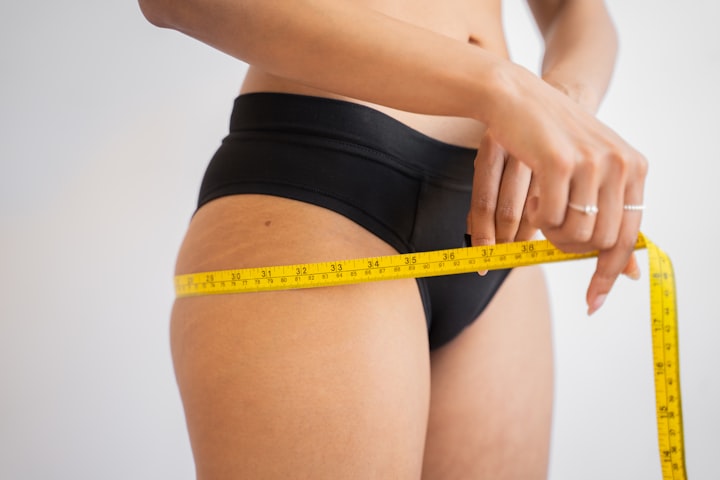Anyone who has attempted to lose weight is well aware of how difficult it may be. While gaining weight can be quite simple, losing it can be really challenging.
It can be challenging to follow a traditional diet and exercise routine.
Exercise is frequently suggested as a weight-loss method. While doing out regularly has many positive health effects, it won't always make you lose weight. The reason for this is that exercise does nothing to alter the hormonal imbalances that frequently promote weight gain and make it difficult to shed weight.
You've come to the perfect site if you want to lose weight without exercising. Without slowing down your metabolism or requiring you to perform strenuous exercises, Ideal You offers a secure, efficient method of weight loss. We'll demonstrate how to lose weight effectively without exercising.
These are practical strategies for both weight loss and weight loss prevention.
Here are 11 methods for shedding pounds without dieting or exercise. They are all supported by science.
1. Consume a lot of protein.
Appetite is significantly influenced by protein. It can make you feel more satisfied, less hungry, and encourage you to consume fewer calories.
This may be because protein has an impact on a number of hormones, such as ghrelin and GLP-1, which regulate feelings of fullness and hunger.
Without purposefully restricting any meals, one study revealed that increasing protein intake from 15% to 30% of calories helped individuals consume 441 fewer calories each day and lose 11 pounds over the course of 12 weeks on average.
If you usually have a grain-based breakfast, you might want to think about switching to an egg-based meal instead.
In one study, obese or overweight women who ate eggs for breakfast consumed fewer calories at lunch than those who ate a meal consisting of grains (10Trusted Source).
Additionally, they consumed fewer calories the rest of the day and for the following 36 hours.
Fish, Greek yogurt, lentils, quinoa, almonds, and chicken breasts are a few examples of foods high in protein.
Tips.
Even without exercise or consciously reducing calories, adding protein to your diet has been linked to weight loss.
2. Keep unhealthy foods hidden from view.
Storing unhealthy meals close to where you can see them may make you feel more hungry and tempted to eat more.
According to a recent study, those who have more high-calorie meals visible in their homes are more likely to weigh more than those who merely put a bowl of fruit on display.
To reduce the likelihood that you will choose unhealthy foods when you are hungry, keep unhealthy foods out of sight, such as in cabinets or closets.
Tips.
You are more likely to eat an impromptu snack if you store unhealthy foods on your counter. Obesity and increasing weight are related to this. Keep healthy foods, such as fruits and vegetables, out in the open as much as possible. Contrarily, keep healthy items on display in your kitchen and put them in the fridge's front row.
3. Drink water frequently.
Water consumption can aid in weight loss, particularly if it is done before meals.
Drinking half a liter (17 ounces) of water around 30 minutes before meals reduces appetite and decreases calorie consumption, according to one study on adults.
Over a 12-week period, participants who drank water before a meal lost 44% more weight than those who did not.
Switching from calorie-dense beverages like soda or juice to water may have an even greater impact .
Tips.
You might eat fewer calories if you drink water before meals. It's especially good to switch to water from a sugary beverage.
4. Reduce the serving size for yourself.
Over the past few decades, portion sizes have expanded, particularly in restaurants.
Larger serving sizes have been associated with an increase in weight gain and obesity by encouraging people to consume more (17Trusted Source, 18Trusted Source, 19Trusted Source, 20Trusted Source.
According to one study, people's calorie intake rose by 30% when dinner appetizer size was doubled.
If you serve yourself a bit less, you might consume a lot fewer calories. And it's doubtful that you'll even notice the distinction.
Tips.
Larger serving sizes have been associated with obesity and may motivate both kids and adults to consume more calories.
Bonus Program To Lose Weight Very Fast: Click Here.
5. Reduce your intake of sugary beverages.
The worst dietary component in use today may very well be added sugar.
The risk of numerous diseases has been raised by sugary drinks like soda
Sugary drinks are a particularly convenient source of extra calories because they don't have the same effects on feeling full as solid meals d.
Complete abstinence from these drinks can have significant long-term health advantages. However, keep in mind that fruit juice shouldn't be used in place of soda because the sugar content may be comparable.
Water, coffee, and green tea are better choices for a beverage.
Tips.
Drinks with added sugar are associated with a higher risk of weight gain and a variety of ailments. You eat more because your brain doesn't detect the calories in liquids as well as it does in solid foods.
6. Red Plates Containing Unhealthy Food.
Utilizing red plates to encourage you to eat less is one outlandish tactic. According to research, this method at least appears to be effective with harmful snack items.
In one study, pretzels were served on red plates, as opposed to white or blue plates, and volunteers consumed fewer pretzels.
The reason could be that we relate red to warning signs made by humans, such as stop signs and other warning signals.
Tips.
You might consume fewer unhealthy snack foods if you use red plates. This could be as a result of the stop reaction that the color red causes.
7. Eat without being distracted by electronics.
You may be able to eat fewer calories if you pay attention to what you eat.
Eating while watching TV or playing video games might cause people to lose track of how much they have consumed. In turn, this may lead to overeating.
People who were distracted at a meal ate roughly 10% more in that sitting, according to an assessment of 24 studies.
Additionally, being distracted during a meal has a much bigger impact on how much you consume later in the day. Distracted diners consumed 25% more calories at subsequent meals than those who were present.
You may unintentionally be eating more if you frequently eat while watching TV or using electronics. These extra calories build up and have a significant long-term impact on your weight.
Tips.
Distracted eating increases the risk of overeating. Being mindful of your meals may encourage you to eat less and shed some pounds.
8. Eat Foods High in Fiber.
Consuming foods high in fiber may lengthen your feeling of fullness by increasing satiety.
Additionally, studies show that viscous fiber is particularly beneficial for weight loss. It increases satiety and decreases appetite.
When a viscous fiber and water combine, a gel is created. This gel prolongs the time it takes for nutrients to be absorbed and delays stomach emptying.
Only meals made from plants have viscous fiber. Beans, oat cereals, Brussels sprouts, asparagus, oranges, and flax seeds are a few examples.
Viscous fiber is also abundant in glucomannan, a weight loss supplement.
Tips.
Viscous fiber is very beneficial for lowering cravings and food intake. In the form of gel, this fiber slows digestion.
9. Consume a lot of protein.
Appetite is significantly influenced by protein. It can make you feel more satisfied, less hungry, and encourage you to consume fewer calories.
This may be because protein has an impact on a number of hormones, such as ghrelin and GLP-1, which regulate feelings of fullness and hunger.
Without purposefully restricting any meals, one study revealed that increasing protein intake from 15% to 30% of calories helped individuals consume 441 fewer calories each day and lose 11 pounds over the course of 12 weeks on average.
If you usually have a grain-based breakfast, you might want to think about switching to an egg-based meal instead.
In one study, obese or overweight women who ate eggs for breakfast consumed fewer calories at lunch than those who ate a meal consisting of grains.
Additionally, they consumed fewer calories the rest of the day and for the following 36 hours.
Fish, Greek yogurt, lentils, quinoa, almonds, and chicken breasts are a few examples of foods high in protein.
Tips.
Even without exercise or consciously reducing calories, adding protein to your diet has been linked to weight loss.
10. Take your time and chew clearly.
You need some time for your brain to register that you've eaten enough.
When you chew your food completely, you eat more slowly, which is linked to lower calorie intake, greater feelings of fullness, and smaller portion sizes.
Your weight may also be impacted by how soon you finish your meals.
A recent review of 23 observational studies found that fast eaters are more likely to gain weight than slower eaters.
Fast eaters have a substantially higher likelihood of being overweight.
If you want to get into the habit of eating more slowly, it might be helpful to keep a record of how many times you chew each meal.
Tips.
If you eat slowly, you can feel fuller while consuming fewer calories. It is an easy way to control weight gain and shed pounds.
11. Sleep properly and stay away from stress.
Stress and sleep are frequently neglected when it comes to health. In actuality, both have significant impacts on your hunger and weight.
Leptin and ghrelin, two hormones that control hunger, may be thrown off by sleep deprivation. When you're stressed, the hormone cortisol also rises.
Your desire and cravings for unhealthy food may increase due to these hormone fluctuations, increasing your calorie intake.
Additionally, persistent sleep deprivation and stress may raise your chance of developing a number of illnesses, such as type 2 diabetes and obesity.
Tips.
Stress and lack of sleep can throw off many vital hormones that control appetite, making you eat more.
Bonus Program To Lose Weight Very Fast: Click Here.
The Bottom Line
Many simple lifestyle habits can help you lose weight. Some have nothing to do with conventional diets or exercise plans.
You can use smaller plates, eat more slowly, drink water, and avoid eating in front of the TV or computer. Prioritizing foods rich in protein and viscous fiber may also help.
However, it’s probably best not to try all these things at once. Experiment with one technique for a while, and if that works well for you, then try another one.
A few simple changes can have a massive impact on your weight over the long term.
About the Creator
jo
Start writing...I







Comments
There are no comments for this story
Be the first to respond and start the conversation.